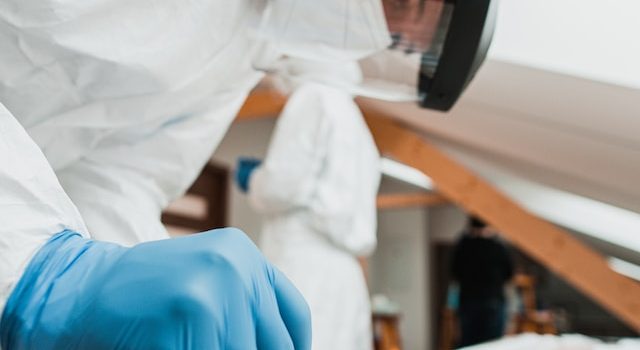
Introduction: As the COVID-19 pandemic continues to evolve, at-home COVID-19 testing kits have emerged as a convenient option for individuals seeking to monitor their health and detect the presence of the virus. However, it is important to understand the appropriate circumstances for using these kits to ensure accurate results and make informed decisions about your health. In this article, we will explore when it is appropriate to use an at-home COVID-19 testing kit, helping you navigate the complexities of testing in different situations.
- COVID-19 Symptoms: If you are experiencing symptoms associated with COVID-19, such as fever, cough, shortness of breath, or loss of taste or smell, using an at-home testing kit can provide valuable insights. Testing can help determine whether your symptoms are caused by COVID-19 and guide appropriate next steps, such as self-isolation and seeking medical care.
- Known Exposure: If you have had close contact with someone who has tested positive for COVID-19, it is crucial to monitor your health and consider using an at-home testing kit. Testing can provide an early indication of infection, even before symptoms develop. Keep in mind that a negative result does not guarantee that you will not develop the virus later, and it is essential to follow up with additional testing if symptoms persist or worsen.
- Pre-Travel Testing: Many countries and airlines require negative COVID-19 test results before allowing travel. At-home testing kits can be a convenient option to meet these requirements. However, it is important to ensure that the specific at-home testing kit you choose meets the criteria set by the destination or airline. Some jurisdictions may require tests conducted by healthcare professionals instead of at-home kits.
- Routine Monitoring: Regular testing can be useful for individuals who want to monitor their health and detect potential COVID-19 infections. This is particularly relevant for individuals with higher exposure risks, such as healthcare workers, essential workers, or those in close contact with vulnerable populations. At-home testing kits can provide a convenient and accessible method for ongoing monitoring.
- Post-Recovery: After recovering from COVID-19, at-home testing kits can help determine if you are still shedding the virus and potentially contagious. However, it is important to note that some individuals may continue to test positive for several weeks even after they are no longer contagious. Consult with healthcare professionals for guidance on the appropriate timing and frequency of testing during the recovery period.
- Supplementing Medical Advice: At-home testing kits can serve as a supplement to medical advice and guidance from healthcare professionals. If you have concerns about your health or potential exposure to COVID-19, consulting with a healthcare provider is recommended. They can provide personalized recommendations on testing, treatment, and monitoring based on your specific circumstances.
Conclusion: At-home COVID-19 testing kits offer a convenient and accessible option for individuals to monitor their health and detect potential COVID-19 infections. Knowing when to use these kits is crucial for obtaining accurate results and making informed decisions about your health. Whether you are experiencing symptoms, have been exposed to the virus, require pre-travel testing, or want to engage in routine monitoring, at-home testing can be a valuable tool. However, it is important to remember that at-home testing should not replace medical advice, and consulting with healthcare professionals remains essential for comprehensive care and guidance.










